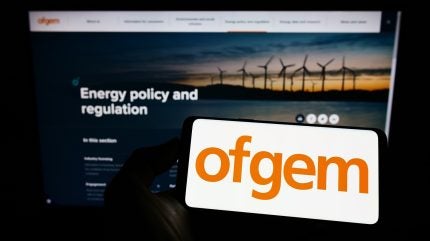
The UK’s Office of Gas and Electricity Markets (Ofgem) has launched a consultation on proposals to introduce energy tariffs with low or no standing charges as an option for all consumers.
The proposal is set for implementation by winter 2025/2026, with a consultation launched to explore practical applications. It aims to give consumers the option to pay these costs as part of the unit rate.
Standing charges currently cover fixed costs for delivering energy, including essential maintenance and infrastructure upgrades.
Ofgem’s consultation follows consumer input, with many advocating for the removal of standing charges to better manage bills and debt.
However, the regulator clarifies that costs can only be shifted, not removed, resulting in higher unit rates for zero standing charge tariffs.
Options for zero standing charge tariffs include single unit rates, falling block tariffs and rising block tariffs.

US Tariffs are shifting - will you react or anticipate?
Don’t let policy changes catch you off guard. Stay proactive with real-time data and expert analysis.
By GlobalDataOfgem is also considering minimum usage requirements to ensure fair distribution of essential costs.
The consultation seeks input from charities, consumer groups and energy suppliers, with a closing date of 20 March 2025.
Ofgem director for retail pricing and systems Charlotte Friel stated: “We know from the huge response we’ve had that many feel standing charges are unfair. However, we also know that vulnerable, high-energy users – including those who rely on medical equipment at home or low-income families in poorly insulated houses – would suffer disproportionately if these costs were added to the unit rate for everyone.
“That’s why we’re moving forward with plans that will give customers a choice and more control over how they choose to pay for their gas and electricity.
“We’re looking closely at how these tariffs will work in practice, but everyone will need to carefully consider which option best suits their needs. The costs included in the standing charge ultimately have to be paid. But while they may not save everyone money, they will give people a choice, and greater control over their bills.”
Ofgem acknowledges the ongoing challenge of energy costs for households and is exploring direct support initiatives, including a proposed debt relief support scheme.
This scheme would help manage significant debt through measures such as debt matching and writing off unpayable debt.
The regulator aims to improve service standards and support for struggling customers.
The consultation invites feedback on the proposed options, particularly from stakeholders, to ensure a balanced approach that addresses consumer needs and maintains fair cost distribution.


